About the course:
Many believe that the law regarding electronic communication, document management, and archives is among the most difficult in the work. Therefore, E-arkiva arranges the course where you will get all the tools you need to be able to handle your electronic communication and document management in accordance with current legal requirements.
Our lawyers will review all the news in the legislation and the latest legal developments. You also get the opportunity to discuss and exchange experiences, learn from each other’s experiences and ask them questions.
Excerpts of content
- AI in public administration
– How can AI be used and what legal framework should one relate to?
– Artificial intelligence for whom?
– Automated decision makingAdministrative development and current work related to electronic document management in e-government
– Continued digitization
– Intensive investigation and legislative work, including the IT operations investigation, Open data investigation
– Regulation of the Duty of Confidentiality in the outsourcing of technical processing or storage of dataPublicity and confidentiality in digital environments
– Review of key concepts as a public document
– How quickly and in what way should the disclosure of a public document take place according to the regulations?
– What is meant by “GDPR secrecy”?How to GDPR-secure your business and adapt to news in legislation and in case law
– What are the consequences of the GDPR in the public administration?
– When is it not allowed to publish public documents on the internet?
– What are the requirements for the use of so-called cloud services?Legal developments regarding e-mail, SMS, chat, and e-services
– How do you interpret and apply regulations on publicity, confidentiality, archiving, and thinning?
– What practical routines can facilitate balancing of the provisions on archiving and thinning?
– What about decision automation?Social media law – what are the obligations of a public organization?
– How should you relate to the EU guidelines?
– Take part in current positions on, for example, authorities’ use of Facebook, Twitter, and blogs
– This is how you meet the requirements for a good public structureE-signatures and security legal requirements – what should you take into account and what does this mean in practice for your business?
– How do you create secure document management that meets the requirements of privacy protection and confidentiality?
– How do you design routines for e-signatures that follow current regulations on electronic originals, copies, and signatures?
– What do the security requirements in the GDPR mean?
Target group
Registrars and archivists who want to learn about information security. Participants who want to gain knowledge about information security and how it can interact with other information management.
Those who are already working or will start working with e-archiving.
Time
The course and workshop are planned to go for 2 months

